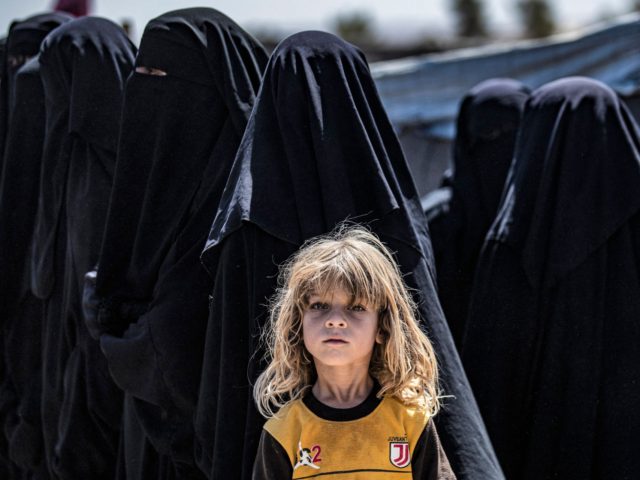Two Islamic State women who returned to Sweden from Syria have been released from police custody after being held on suspicion of engaging in war crimes.
Three Islamic State women were flown back to Sweden earlier this week along with their six small children after being held in Syria by Kurdish authorities.
On Tuesday morning, the Prosecutor’s Office announced that two of the three women had been taken into custody as they were suspected of having participated in war crimes while they lived in previously held Islamic State territory in Syria, SVT reports. The third woman was questioned and released.
Interior Minister Mikael Damberg told the broadcaster that there are several ongoing investigations into Swedish Islamic State members, saying: “I can confirm that there are several suspicions of war crimes that are being investigated. We have many investigations, both of people who are in Sweden but also in these camps.”
“If there are reasons to suspect a crime, a preliminary investigation will be opened. It is important to say that although the Kurdish authorities have not found enough evidence to initiate legal proceedings against them, there is no statute of limitations for many of these serious crimes for which they can be suspected,” he added.
Later that day, the two returnees were released, but authorities said they still remain subjects of interest.
The Public Prosecutor’s Office told SVT: “Suspicions remain, but prosecutors have made an assessment that there are no grounds for continued detention.”
A press release had signalled that the decision for the release was a result of the “assessment of the state of evidence”.
According to the broadcaster’s sources, one of the women, from western Sweden, is suspected of war crimes, genocide, and crimes against humanity.
Kurdish authorities claimed the women pose a security threat, according to the deportation order seen by SVT, and only released them on condition that Swedish authorities retrieved them and ensured they were investigated by their home country.
Securing convictions of suspected war criminals involved with the Islamic State terror group have proved problematic for Sweden in recent years, due to the difficulty of obtaining evidence from warzones.
Last December, Swedish terrorism expert Magnus Ranstorp noted the difficulty, saying of a case of another female Islamic State member: “If you don’t have digital tracks or testimonies, it’s very difficult to get her convicted of anything.”
Mr Ranstorp previously called for Sweden not to allow jihadists to return at all due to the lack of effective legislation.
In March, it was revealed that a year after being implemented, the Swedish anti-terror law saw a total of zero people being charged under it.
The Swedish police’s National Operational Department (Noa), meanwhile, has claimed that there are around 30 to 40 ongoing investigations into the activities of Swedish Islamic State members.

COMMENTS
Please let us know if you're having issues with commenting.